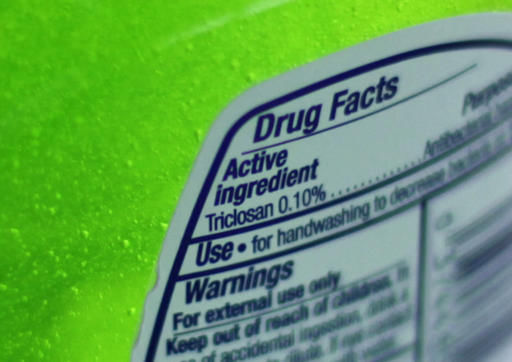-
Tips for becoming a good boxer - November 6, 2020
-
7 expert tips for making your hens night a memorable one - November 6, 2020
-
5 reasons to host your Christmas party on a cruise boat - November 6, 2020
-
What to do when you’re charged with a crime - November 6, 2020
-
Should you get one or multiple dogs? Here’s all you need to know - November 3, 2020
-
A Guide: How to Build Your Very Own Magic Mirror - February 14, 2019
-
Our Top Inspirational Baseball Stars - November 24, 2018
-
Five Tech Tools That Will Help You Turn Your Blog into a Business - November 24, 2018
-
How to Indulge on Vacation without Expanding Your Waist - November 9, 2018
-
5 Strategies for Businesses to Appeal to Today’s Increasingly Mobile-Crazed Customers - November 9, 2018
FDA says there is no proof ingredients in antibacterial soaps work
Three years after the agency asked manufacturers of over-the-counter antibacterial soaps to provide proof of safety and effectiveness, the FDA has made a decision to ban those marketed as “antibacterial” that contain any of 19 specific active ingredients.
Advertisement
The US Food and Drug Administration just released a new, exhaustive report and ruling that there’s actually no good evidence they perform any better than plain old soap and water when it comes to preventing illness or the spread of bacteria and viruses. Well, the FDA made their final ruling public on Friday, “establishing that over-the-counter (OTC) consumer antiseptic wash products containing certain active ingredients can no longer be marketed”.
Many manufacturers have already started phasing out the active ingredients like triclosan and triclocarban.
The FDA just announced it is eliminating nearly all of the active ingredients used in antibacterial soaps after determining that the soaps didn’t have any more impact on preventing the spread of germs and infections than regular soap.
If soap and water are not available for washing and a consumer uses hand sanitizer instead, the Centers for Disease Control and Prevention (CDC) recommends that it be an alcohol-based sanitizer containing ≥60% alcohol. In addition, there is some evidence that some of these ingredients could lead to problems such as bacterial resistance or hormonal effects, according to the FDA. Researchers are concerned about triclosan after studies showed the chemical can impact thyroid hormones in adolescent animals.
For three other ingredients that aren’t used as often – benzalkonium chloride, benzethonium chloride and chloroxylenol – the FDA is providing an additional year for manufactures to supply data.
Triclosan is an ingredient in 93 percent of soap products labeled as antibacterial or antimicrobial, the FDA said, and can be found in more than 2,000 separate products on store shelves.
“If you use these products because you think they protect you more than soap and water, that’s not correct”.
As such, the agency established a new rule that requires manufacturers to either remove certain ingredients from their products or else stop selling the products at all.
Despite a long and expensive lobbying campaign, the $30 billion personal care products industry was unable to prove that the widely used antibacterial cleansers were safe and effective.
In late 2013, the FDA told manufacturers they must show their products are safe and effective. “Manufacturers are continuing their work to provide even more science and research to fill data gaps identified by FDA”.
Advertisement
In the absence of either convincing data or any data submission at all, the FDA issued its final rule proposal today, which rules out the use of 19 ingredients.





























